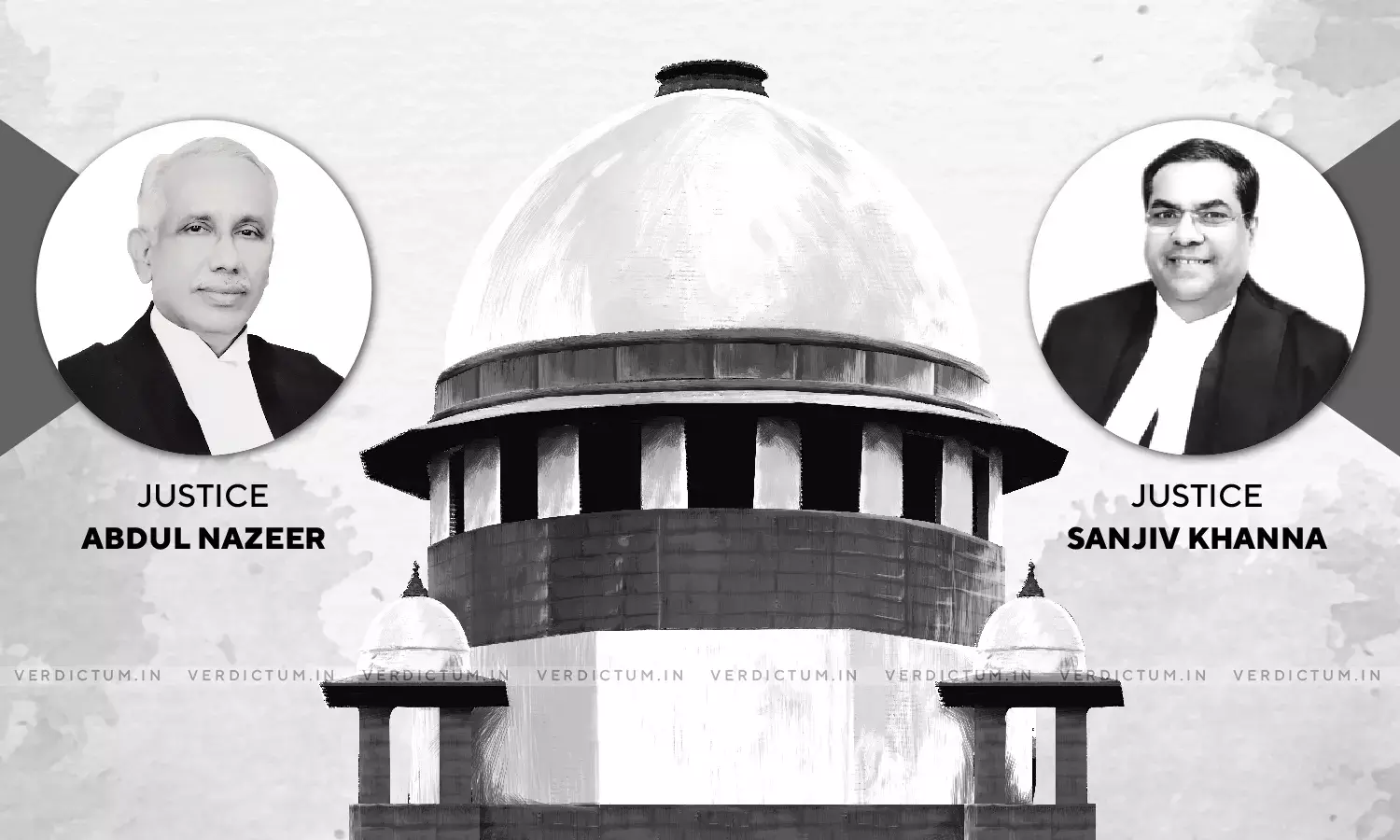Commission Payable To Mutual Fund Distributors Not Expense Connected With Winding Up Of Scheme - Supreme Court

The Supreme Court has observed that commission payable to the mutual fund distributors is certainly not an expense connected with the winding up of the scheme.
The Bench of Justice S. Abdul Nazeer and Justice Sanjiv Khanna observed, "We would concede that, in the given case, some of the recurring expenses mentioned in clause (b) to Regulation 52(4) like audit fee, insurance premium, cost of statutory advertisements, etc., would be covered and would satisfy the requirement of clause (b) to Regulation 41(2). However, if and only when they fall under and meet the requirement of the expenses connected with the winding up can they be allowed under Regulation 41(2)(b). Such expenses are allowed not because of clause (b) to Regulation 52(4), but because the expenses incurred would satisfy the requirement of being connected with such winding up under Regulation 41(2)(b). Commission payable to the mutual fund distributers is certainly not an expense connected with the winding up of the scheme."
The Court also held, ""The intent behind specifying total expense ratio and the performance disclosure for mutual funds is to bring greater transparency in expenses and to not confer any right on the mutual fund distributors to claim expenses under clause (b) to Regulation 41(2), which pertains to the procedure and manner of winding up."
While explaining the meaning of the expression due and payable under the Security and Exchange Board of India (SEBI) Regulations 1996, the Supreme Court has reiterated that the expression 'due and payable' has to be interpreted with reference to the context in which the words appear.
The Bench observed that to cover liability under the said expression, there must be an existing obligation to pay though the appointed date of payment may not have arrived.
"Any liability which is not due and payable, in facts and in law, would not be covered by the expression 'due and payable.", the Bench opined.
The Court was dealing with the application filed by the Foundation of Independent Financial Advisors (FIFA) claiming that independent financial advisors/mutual fund distributors are entitled to payment of commission agreed between them and Franklin Templeton Asset Management (India) Private Limited.
Advocate Jasmeet Singh appeared for the appellants whereas Advocate Caveat Christi Jain represented the Respondents.
The Court had dismissed the said application vide its earlier order and by the instant order, the Court gave the reasons for such dismissal.
While stating the reasons for the dismissal of the said application the Court observed thus "If we are to accept the contention of FIFA, the necessary sequitur is to also acknowledge and accept that the asset management company, even post the publication of notices under Regulation 39(3)(b), would be entitled to fees and expenses mentioned and covered by Regulation 52, as per the terms and quantum specified in sub-regulation 6 to Regulation 52. Sub-clause (c) to Regulation 52(6) specifies the percentage of total expenses of the scheme which is allowable, varying from 2.5% to 1.75% of the daily net assets. This, in our opinion, would not be a correct interpretation and lead to anomalies and tribulation with adverse consequences for the suffering unitholders, and undo the embargo directing the ceasure of business."
"…FIFA has claimed that the commission payment due to the mutual fund distributors on and from 23rd April 2020 is an amount 'due and payable under the scheme', as it is an amount or payment that had accrued before the publication of notices under Regulation 39(2)(b), but was not paid as it was payable in future. Commission payable to mutual fund distributors is in the nature of trail, and therefore, is payment due for the services rendered to the unitholders prior to the winding up. This argument is farfetched and fallacious.", the Bench opined.
The Court stated that the recurring liability is not a present liability, but an obligation that, on the satisfaction of certain conditions, may accrue in future.
The Court further explained that asset management company is entitled to charge fees and expenses in terms of sub-regulations (1) and (2) of Regulation 52 and the mutual fund distributors are not entitled to direct payment from the unitholders.
"On and after publication of the winding up notice in terms of Regulation 39(3)(b), the trustees and the asset management company cannot claim any payment on account of recurring expenses under clause (b) to sub- regulation (4) to Regulation 52. That being the position, as held above, the claim of FIFA has to be rejected.", the Court said.
The Court further stated that even if a distributor renders some services to the unitholders after publication of the notice under Regulation 39(3)(b), it would not entitle him to claim an amount from the asset management company.
Cause Title- Franklin Templeton Trustee Services Private Limited & Another v. Amruta Garg & Others Etc
Click here to read/download the Order

